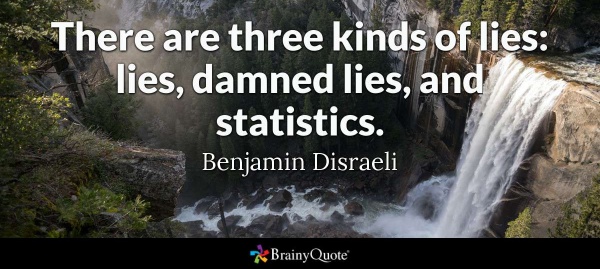What is more important, reading or job prospects?
Lies, damn lies, international agencies and priorities.

Actually, it is 49.711% more complicated than that.
</em></u>
Let’s talk lies, damn lies, statistics, international agencies and right priorities, starting from this very interesting post: “Fancy formulas, no substance”.
What Fancy Formulas, No Substance says, in a nutshell
In the past several years, UNESCO and UNICEF have sounded the alarm about an “education crisis” in developing countries. Worldwide, says UNESCO, 56% of primary-school-age children are not achieving minimum proficiency levels (MPLs) in reading. In sub-Saharan Africa, the figure is 85%.
The author of that post got curious about how UNESCO came up with such precise numbers, and concluded that:
- (as in any other estimate, since prehistory) “the result will be accurate only to the extent that the underlying data and assumptions are correct”
- in this case, the formula used to get that 56% figure is a “high-falutin' way of stating what would be obvious to anyone who knows a little math."
- its assumptions “range from plausible, to dubious, to laughable, to flat-out wrong. For example, if you can’t read but can fix a motorbike, your job prospects in many countries will be far better than if you can pass a basic reading test but have no common sense."
- As for out-of-school rates: “Among many other problems, UNESCO data routinely considers children in private or religious schools, such as madrasas, to be “out of school” - and it classifies them as therefore “not learning." (ME: try to imagine how all homeschooling parents in western, or non-Muslim countries would react at being classified this way)
- “Not only are these numbers based on the flimsiest of foundations, but we don’t even know what they represent. UNESCO itself notes that there is currently no global consensus on how to define minimum proficiency levels in reading and mathematics."
Why does it matter?
In my words, this matters a lot because UNICEF, UNESCO and similar agencies (whose high level goals and good faith I personally do not question). So, if they make mistakes, they waste, albeit unvoluntarily, a lot of resources of all kinds.
Even more serious is that, willing or not, the U.N. is so big that what it does unavoidably monopolizes the discussion and planning about certain problems. The post author is upset because “Now we’re thinking about how to improve in-school learning. But really, we need to question whether school is even the right place for all - or most - or even any - children."
I do not agree there, for reasons I’ll explain in a moment. But it is hard to object that what UNESCO, UNICEF etc… do can “divert from the issue of who should decide how a society educates its children”. Again, try to ask any western homeschooling parent her opinion on the matter, and she’ll almost certainly side with that post.
Since UNICEF itself has stated that “Education needs and priorities differ hugely across different countries and regions”… Why not encourage countries to try various approaches, instead of pushing one-plan-fits-all mentality?"
The final argument of that post ist that “UNESCO shows considerably bad faith when it publishes so much data while hiding the poor quality of it."
What is Education, again?
I do not have the right data, and probably not even the skills, to decide if, how much, and where, that post could be right or wrong. But after reading it fully (do that!), I feel confident to say that:
- it is a good reminder that, in any field, if one asks the wrong questions, the answers won’t matter
- this applies even to that post, even if all its critiques were 100% right
- because defining employability as the objective of schooling, or even as just the primary one, means doing things wrong
Let’s read that quote, again:
“If you can’t read but can fix a motorbike, your job prospects in many countries will be far better than if you can pass a basic reading test but have no common sense."
Very probably true, as it is. But reading, and reading well, constantly, is probably more important than “job prospects”. Life is not equal to work (much more about this is available here), and reading is an extremely important tool to understand what matters, and make the right choices. Education, including schooling, should be primarily about forming good citizens, which is not a synonimous of “employable workers”.
People who can fix motorbikes (or bones, or computers, for that matter) will be pacifically fooled, or fall into the crappiest conspiracy theories much more easily, if they cannot read. Or, as it is happening now in “first world countries” all they read outside social media is technical documentation for their job, no matter how qualified that job is.
I do not have a solution for the problem exposed in that post. I only want to stress that “fixing” that problem to just improve people’s “job prospects” will not help them much, in the long run.
Who writes this, why, and how to help
I am Marco Fioretti, tech writer and aspiring polymath doing human-digital research and popularization.
I do it because YOUR civil rights and the quality of YOUR life depend every year more on how software is used AROUND you.
To this end, I have already shared more than a million words on this blog, without any paywall or user tracking, and am sharing the next million through a newsletter, also without any paywall.
The more direct support I get, the more I can continue to inform for free parents, teachers, decision makers, and everybody else who should know more stuff like this. You can support me with paid subscriptions to my newsletter, donations via PayPal (mfioretti@nexaima.net) or LiberaPay, or in any of the other ways listed here.THANKS for your support!